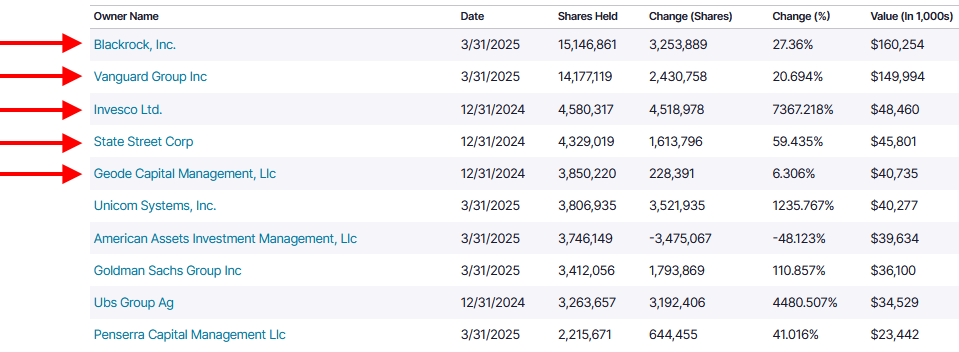Microsoft’s Latest Mess-Up With Quantum Computers Shows Huge Uncertainty With This New Technology
You can’t even trust lab research

You should believe Nvidia CEO Jensen Huang when he says
“Very useful quantum computers are decades away.”
Otherwise, you could lose money by investing in young quantum computing startups burning money and having no product.
These small caps are contenders in the new technology:
IonQ
D-Wave Quantum
Rigetti Computing
Quantum Computing
In addition to Microsoft, IBM, and Google.
Some of them might eventually create quantum computers for the mass market and make their investors insanely rich.
But which company will that be? You don’t know. Nobody does. There’s too much uncertainty. It’s clear when you follow scientific publications in this space.
This is not unusual. I’ve seen big false claims a few times in my research career. But I don’t remember a giant like Microsoft being involved.
Let me tell you how it just screwed up.
The controversial research paper
Quantum computers are no more than lab toys in 2025.
Everyone wants to create the first quantum computer for the mass market. But so far, we only have classical ones which process information using zeros and ones in fixed states.
Quantum computers are based on qubits. The qubits follow quantum mechanics’ Uncertainty Principle. You don’t know the state of a qubit until you’ve measured it.
The state can be both zero and one at the same time. And if you connect many qubits, the total number of the system’s states grows exponentially. Your quantum computer could be thousands of times faster than a classical one.
But qubits are fragile.
Their states can be destroyed by heat, vibrations, and electromagnetic radiation. To keep them stable, you need to make fancy devices that can preserve specific quantum states.
Those are called Majorana states. It’s when a particle such as an electron acts like its own antiparticle.
This state is electrically neutral, unlike regular electrons which are negatively charged. This makes Majorana states less sensitive to local disturbances and can stabilize qubits.
But Majorana states are elusive. It’s hard to make electrons behave like Majorana particles. If physicists are still struggling with that in the lab, how long will it take to create a real quantum computer?
This is the main challenge in quantum computing right now.
A group from the Delft University of Technology in the Netherlands published a research paper in the high-profile journal Nature Communications in 2017 that reported an ultrathin device that could sustain Majorana states.
The paper shows state-of-the-art experiments and their theoretical description. You can see that the authors did their homework.
There were no red flags until April 2025.
Two co-authors of the paper informed the Editorial Staff of potential problems with the data presented. The journal didn’t retract the paper but published an Expression of Concern.
This is a serious issue that could hurt the authors’ credibility in future publications. It could be especially bad for young scientists who barely started their research careers. The two researchers who came out asked to be removed from the authors’ list.
Here are the issues:
Omitted details of data analysis
Omitted experimental details
Wrong figures
For example, the team tested twenty-one devices but included the data only for four in the paper. In my lab we call this data manipulation. Some of the co-authors seem to have known about the issue before the paper came out.
Now the paper has been amended. But the two co-authors insist it should be retracted. They truly believe they screwed up.
The ultimate proof is not there yet
My former lab colleague Liz used to say we’re allowed to misinterpret the data. Humans make mistakes. But we’re *not* allowed to show the wrong data.
There are two ways to catch an author lying in a research paper.
Someone reads their paper, tries to reproduce your experiment, and fails.
The authors of the original publication come out.
The first scenario is rare. Fundamental science is vast, and if you investigate the thermal conductivity of sand grains at absolute zero, nobody will want to spend resources on verifying your data.
Quantum computing is a hot topic. The technology will make the respective researchers and businesses a pile of money once a mass market product is ready.
McKinsey says quantum computing will create value worth trillions of dollars. So you can expect someone to dig deeply into what you report in a journal that the entire world reads.
The research published in the amended paper was funded by Microsoft.

Did it know about the data manipulation? It’s hard to tell but the company is now part of the scandal.
Quantum computing is shrouded in controversy. Here are more problematic high-profile papers from this space.
Nature retracted two papers (this one and this one) on Majorana physics by the Delft University of Technology.
The journal Science retracted another Majorana paper from the University of California for data irregularities.
This Majorana paper received an expression of concern.
Another paper has reproducibility issues.
You don’t always blame the researchers who publish the wrong data.
They could’ve been in a hurry to complete the analysis and made a mistake. Especially when a giant like Microsoft needs new technology and potentially puts the researchers under pressure.
But you do need to be extra careful with your investments in this space.
Someone will eventually claim they’ve made a breakthrough in quantum computing. If it’s a public company, its stock will soar.
We have no idea when that will happen. We have no idea if the claim will be true. For now it’s worth keeping an eye on what’s happening in quantum computing research.
In February 2025, Microsoft reported a new chip that could be used for quantum computers. And guess what.
Some physicists are skeptical. It’s just a chip. Microsoft’s new paper doesn’t provide smoking gun evidence the chip is a realization of the quantum computer.
The ultimate proof will come when the devices perform as expected once they scale up.
The bottom line
I study quantum computers but I don’t invest in any of the companies working on them.
There’s no clear leader yet. The giants like Microsoft publish controversial research while young startups are burning money on R&D without having stable revenues.
However, institutional investors like BlackRock are slowly accumulating the stocks of the small companies. Here’s the institutional ownership of Rigetti Computing:

The big investors seem to believe in the young startups. Does this mean you should invest in them right away?
Only if you understand which one will win the quantum computing race and why.
For my taste, there’s still too much uncertainty.
This article is for informational purposes only. It should not be considered Financial or Legal Advice. Not all information will be accurate. Consult a financial professional before making any major financial decisions.




Always invest in crooked companies.
They do great!